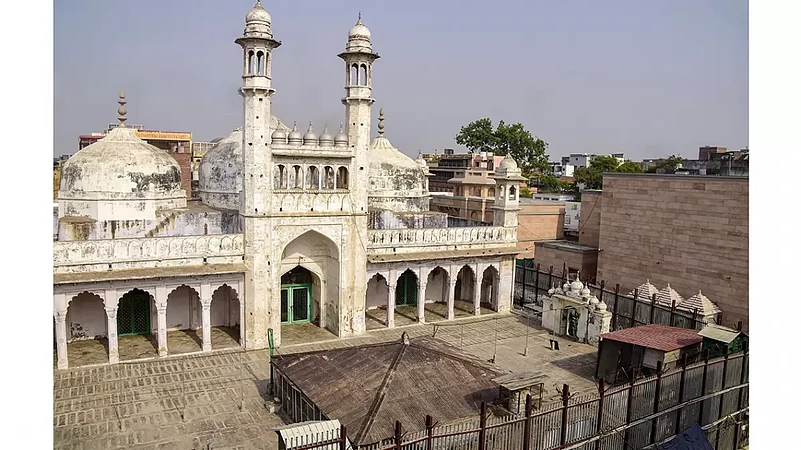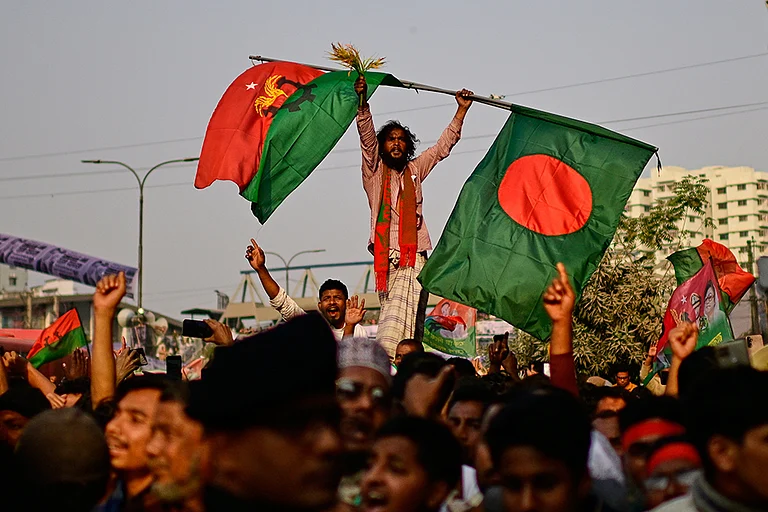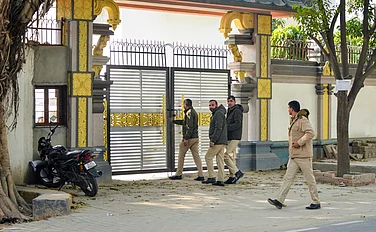The Allahabad High Court on Wednesday dismissed a plea from the Muslim committee challenging the maintainability of a civil suit filed by five Hindu women worshippers seeking the right to worship inside the Gyanvapi mosque in Varanasi. The court's decision allows the case to continue in a local Varanasi court.
In essence, the high court has rejected the mosque committee's challenge to the five Hindu women worshippers' suit pending before the Varanasi Court. Last year in December, the bench of Justice JJ Munir reserved its judgment after hearing counsels for both parties at length.
With this, the Court has upheld the September 12, 2022 order of the Varanasi Court holding the said suit to be maintainable.
According to a report by LiveLaw, the Masjid Committee had moved the High Court in October 2022, days after the Varanasi Court dismissed its plea (filed under Order 7 Rule 11 CPC) challenging the maintainability of a suit filed by five Hindu women (plaintiffs) seeking worshipping rights in the Gyanvapi Mosque compound.
In its order, the Varanasi District Judge Ajay Krishna Vishwesha had observed that the suit of the plaintiffs is not barred by the Places of Worship (Special Provisions) Act, 1991, The Waqf Act 1995, and the U.P. Shri Kashi Vishwanath Temple Act, 1983 as was being claimed by the Anjuman Masjid Committee (which manages Gyanvapi Masjid), the report said.
Background
Hindu petitioners had sought permission for daily prayers before the idols on outer walls of the Gyanvapi mosque. The Muslim petitioners had challenged the maintainability of the Hindu petitioners' plea, arguing that it was not maintainable under the Places of Worship Act 1991 which prohibits conversion of any place of worship and mandates the maintenance of the religious character of any place of worship as it existed on August 15, 1947.
The Anjuman Intezamia Masjid Committee had said the Gyanvapi mosque is a Waqf property and had questioned the maintainability of the plea. Madan Mohan Yadav, a lawyer of the Hindu side, had said that the mosque was constructed after demolishing the temple.
"Muslim side will continue with its arguments. According to them, the case is not maintainable, but we've said that it's maintainable. Our demand to grant worship there is legally valid," said Advocate Vishnu Shankar Jain earlier, appearing for the Hindus, according to ANI.
The Gyanvapi mosque is located close to the Kashi Vishwanath temple. A Varanasi civil court had ordered the survey of the mosque complex while hearing a petition by five Hindu women seeking permission for daily prayers before the idols on its outer walls. It was claimed that a shivling was found in the mosque compound during the survey.
(With inputs from PTI)


























